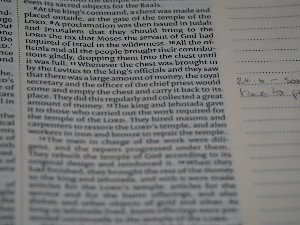As’ad, Fatimah
Peran Kepala Sekolah dalam memenejerial kurikulum di Madrasah Tsanawiyah (MTs) Samailul Huda, Demak
Introduction
Peran kepala sekolah dalam memenejerial kurikulum di madrasah tsanawiyah (mts) samailul huda, demak. Studi ini menganalisis peran kepala sekolah dalam manajemen kurikulum di Madrasah Tsanawiyah Samailul Huda, Demak. Mengungkap peran efektif dalam perencanaan, implementasi, & evaluasi.
Abstract
The purpose of this study was to analyze the role of the school principal in managing the curriculum at Madrasah Tsanawiyah (MTs) Samilul Huda, Mlaten Village, Mijen District, Demak Regency. This research uses a qualitative approach and the method used is a case study (case study) which aims to photograph events, facts, data, and incidents regarding the management of the curriculum in the school. The data source of the research is the principal askey informan (main source) and all MTs Samailul Huda teachers. As for the technique and procedure of data collection, it is done through in-depth interviews (in depth interview), observations or observations of researchers in activities in the field, and analysis of documents related to the object of this research. The results of the study can be concluded that there are three roles that are quite effective for the principal in managing the curriculum (1) planning consisting of technical and teacher understanding, (2) implementing the curriculum in class learning (3) and evaluating learning outcomes and class learning.
Review
This study, titled "Peran Kepala Sekolah dalam memenejerial kurikulum di Madrasah Tsanawiyah (MTs) Samailul Huda, Demak," offers a focused qualitative investigation into the crucial role of school principals in curriculum management within an Islamic secondary school context in Indonesia. The research clearly articulates its purpose: to analyze the principal's contribution to curriculum management at MTs Samilul Huda. The choice of a case study approach is highly appropriate for gaining an in-depth understanding of such a complex, context-specific phenomenon, providing valuable insights into a particular educational setting. This topical focus is timely and relevant, especially given the continuous evolution of curricula and the pivotal leadership required for its successful implementation. Methodologically, the study employs a qualitative case study design, which is well-suited to exploring the nuances of leadership roles. Data collection relied on multiple sources, including the school principal as the primary informant and all teachers, utilizing in-depth interviews, observations, and document analysis. This triangulation of data sources enhances the credibility of the findings. However, while the principal is designated as the "key informant," the abstract could elaborate more on how the perspectives of "all MTs Samailul Huda teachers" were specifically integrated and weighted in the analysis, beyond just being a data source. Further clarification on the specific scope of "activities in the field" observed would also strengthen the methodological description. The research concludes by identifying three effective roles of the principal in curriculum management: (1) planning, encompassing technical aspects and teacher understanding; (2) implementing the curriculum in classroom learning; and (3) evaluating learning outcomes and classroom learning. While these categories provide a clear framework, the abstract presents them quite concisely. A slightly more detailed summary of *how* these roles are effectively performed, or perhaps a hint at the challenges faced and overcome, would enrich the immediate understanding of the study's impact. Nevertheless, these findings contribute to our understanding of educational leadership in madrasahs and could serve as a valuable reference for principal training and policy development aimed at enhancing curriculum management practices in similar institutions. Future research might expand on the specific strategies employed within each role and their measurable impact on student learning outcomes.
Full Text
You need to be logged in to view the full text and Download file of this article - Peran Kepala Sekolah dalam memenejerial kurikulum di Madrasah Tsanawiyah (MTs) Samailul Huda, Demak from SINAU: Jurnal Ilmiah Pendidikan dan Pembelajaran .
Login to View Full Text And DownloadComments
You need to be logged in to post a comment.
Top Blogs by Rating
The Geological Secret in Your...
By Sciaria
Zero-Knowledge Proofs: The Cry...
By Sciaria
Beyond the Stereotype: Unpacki...
By Sciaria
Favorite Blog
Electro: The Art of Engineered...
By Sciaria
Your Dynamic DNA: The Adapting...
By Sciaria
Is Electro Music the New Class...
By Sciaria





